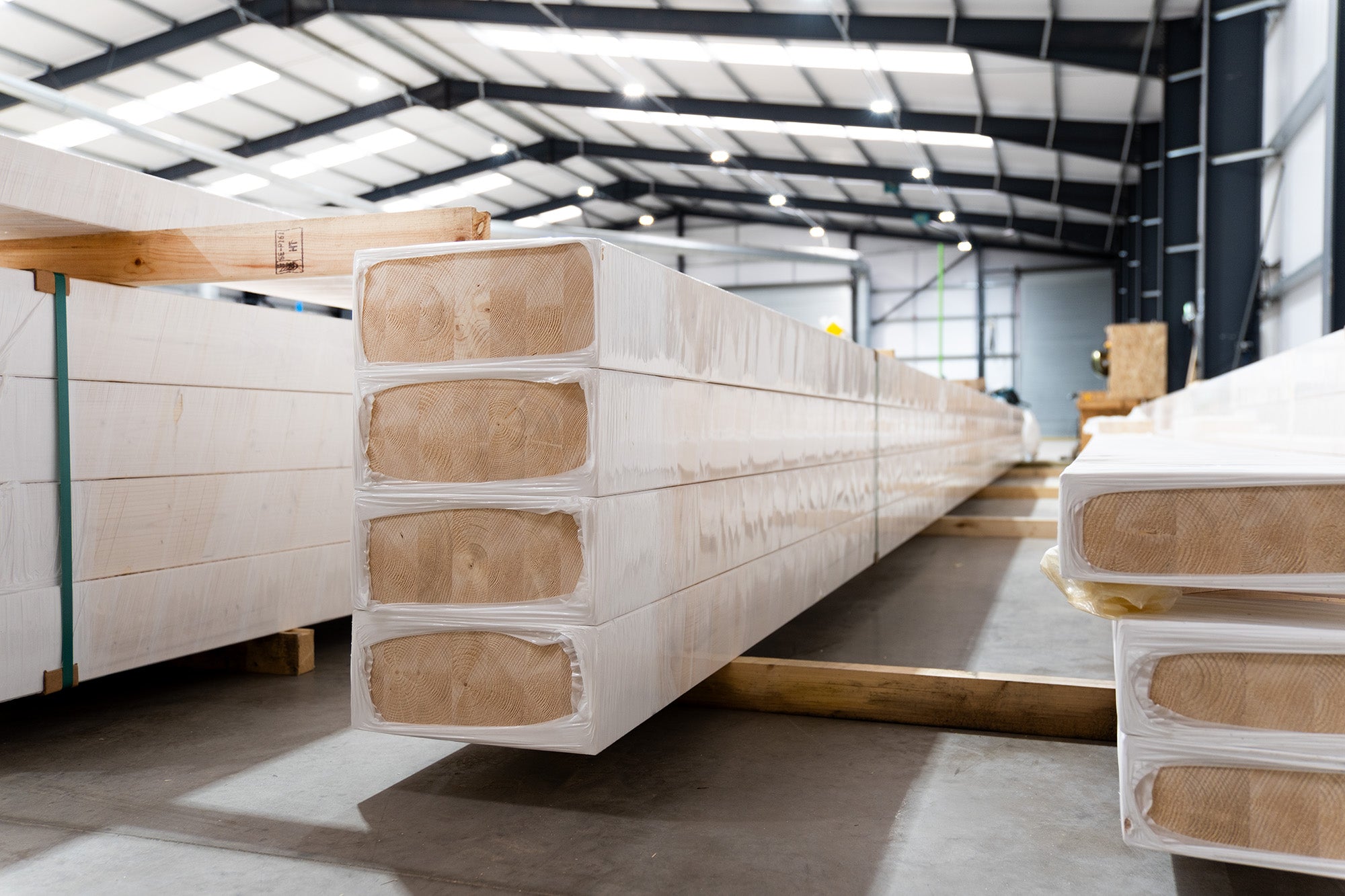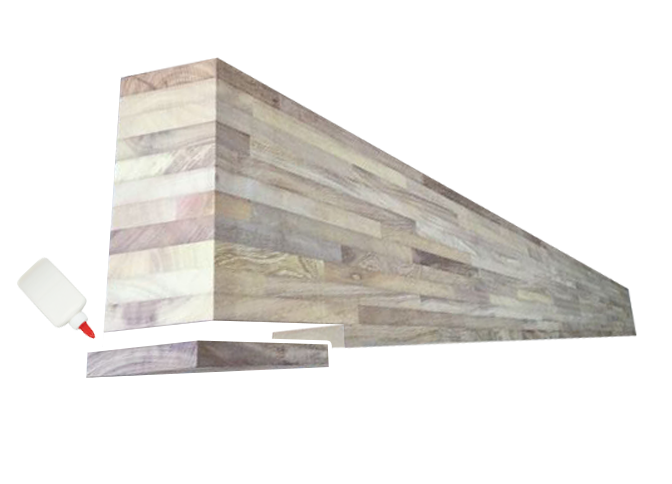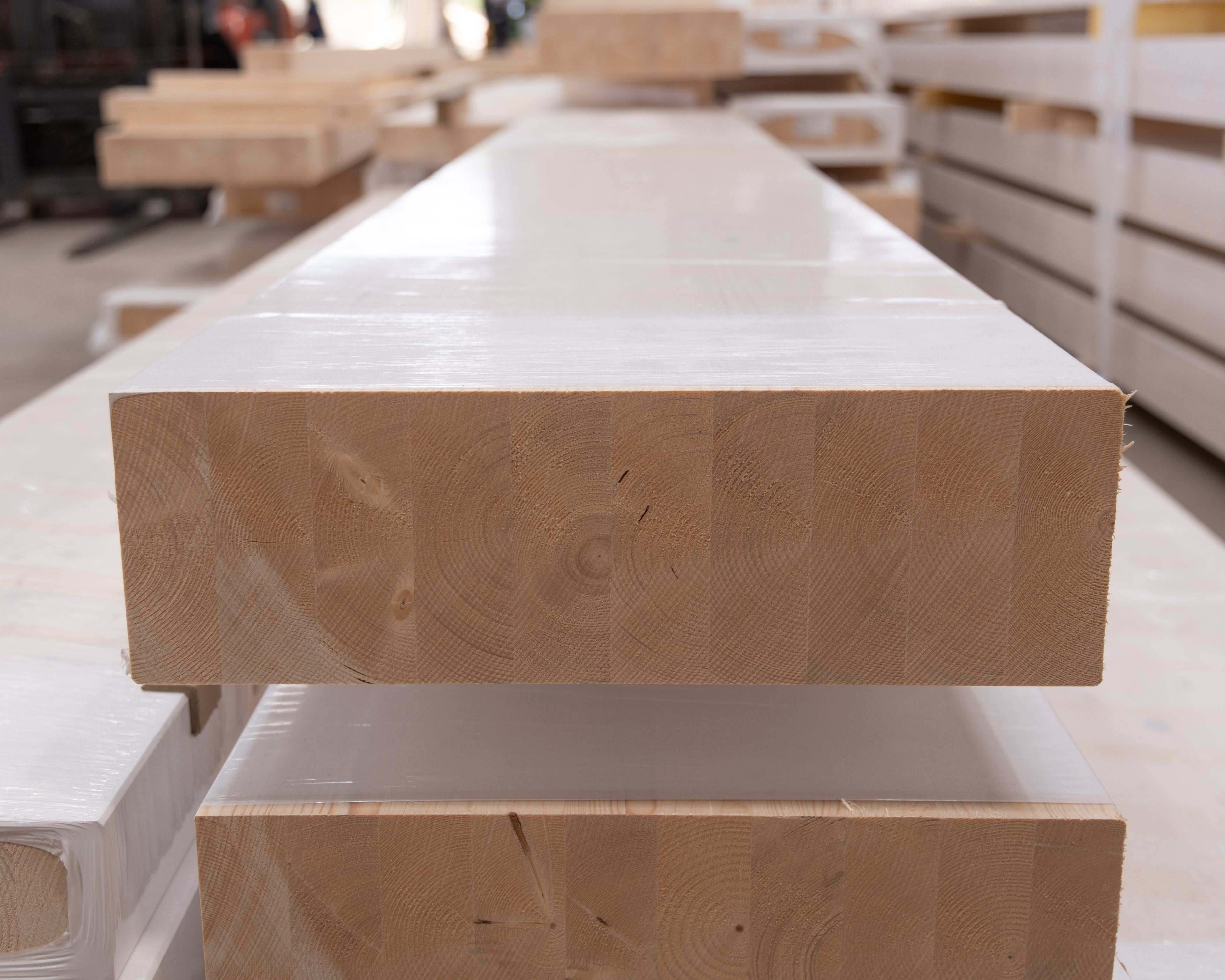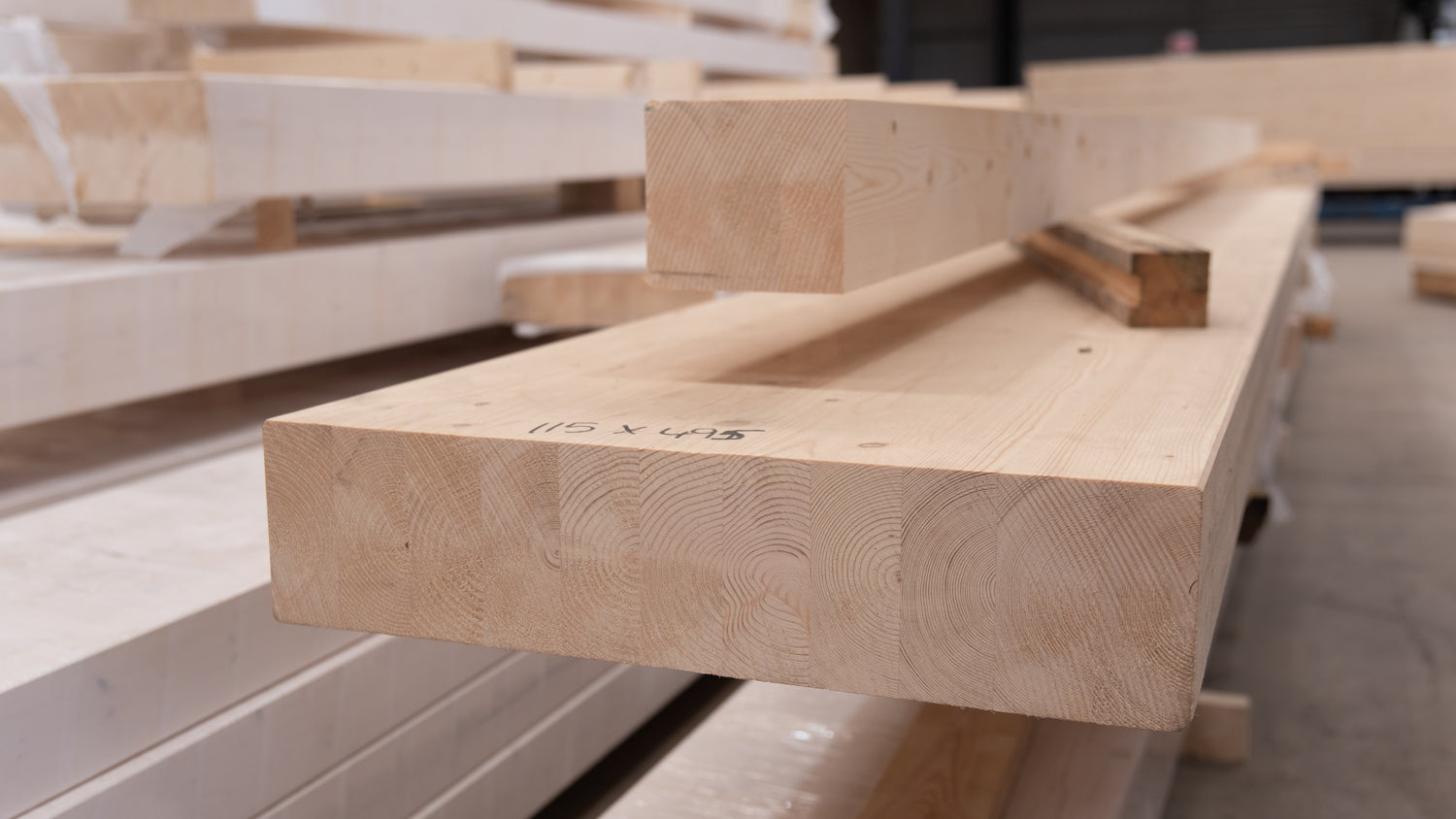
Glulam Beams Delivered in 5-10 Days
⭐️⭐️⭐️⭐️⭐️
"Tailor Made were super helpful in organising a bespoke size ridge beam on such short notice. Staff were super friendly, and we had the beam on site in less than a week. Will definitely be using again, thanks for the help!"
— Arrowbuild SW Ltd

What is Glulam?
Glulam (Glued Laminated Timber) is a versatile and durable engineered wood product, ideal for structural applications in both residential and commercial construction. With its ability to span long distances without the need for additional support, glulam is perfect for beams and columns. As an environmentally friendly and cost-effective alternative to steel, glulam offers design flexibility, superior load-bearing capacity and enhanced aesthetic appeal.
With a 180% reduction in weight per metre cubed, glulam is super strong yet far more manageable on site.

How is Glulam Made?
The process begins with high-quality, kiln-dried timber sourced from Scandinavian sawmills — a region known for its slow-grown, straight-grain softwood. Each individual piece of timber is machine-sorted and checked for strength and moisture content. This ensures only the best timber goes into production.The raw timber is then cut into lamellae — thin lengths of wood that form the building blocks of a glulam beam. Where necessary, shorter pieces are finger-jointed end to end to create longer, continuous lengths. This method of joining produces a strong, reliable bond while reducing waste by making use of offcuts that might otherwise be discarded.

Once the lamellae are prepared, they’re glued together face to face using a high-performance adhesive. The glued assembly is then pressed under controlled pressure to ensure a strong, consistent bond across the full depth of the beam. This is what gives glulam its excellent load-carrying capacity and dimensional stability.
After curing, the beam is planed smooth on all four sides to give it clean, straight edges and a finished appearance. At this stage, the beams can also be cut to specific lengths. We offer beams in 12m lengths, cut down to whatever span you require.
Benefits of Glulam Beams
-
Lightweight 🪽
Compared to steel and concrete, glulam is relatively lightweight, reducing transportation costs and making it significantly easier to handle on site.
-
Cost-effective 💷
Compared with steel, glulam can be more cost-effective. You can add the beams below to your basket to build a quote online in just a few minutes.
-
Sustainable 🌳
Glulam is a largely renewable material, and its production process generates less carbon dioxide compared to steel and concrete, making it an eco-friendly option for construction.
-
Strong 💪
Glulam is engineered to support heavy loads, making it a suitable material for large structures like bridges, roofs and beams. It also has high resistance to bending and can handle heavy stresses.
Sizes Available
All glulam beams are available in three timber widths and up to 12m in span
-
Glulam Beam: 225mm Depth
Regular price From £12.15Regular priceUnit price / per -
Glulam Beam: 270mm Depth
Regular price From £14.58Regular priceUnit price / per -
Glulam Beam: 315mm Depth
Regular price From £17.01Regular priceUnit price / per -
Glulam Beam: 360mm Depth
Regular price From £19.44Regular priceUnit price / per -
Glulam Beam: 405mm Depth
Regular price From £21.87Regular priceUnit price / per -
Glulam Beam: 450mm Depth
Regular price From £24.30Regular priceUnit price / per -
Glulam Beam: 495mm Depth
Regular price From £26.73Regular priceUnit price / per
FAQs
What is glulam?
Glulam (glued laminated timber) is a type of engineered wood product made by gluing together layers of wood to form beams, columns, or other structural elements. It offers high strength, flexibility, and design versatility while maintaining a natural wood appearance.
What are the advantages of using glulam beams?
Glulam offers several advantages, including its ability to span long distances without intermediate supports, its sustainability (since it uses renewable wood), its aesthetic appeal and its strength and flexibility in design.
Can glulam be used instead of steel beams?
Yes, glulam can replace steel beams in some structural applications, particularly in building designs where aesthetics or sustainability are priorities and the loads are slightly lower.
How much does glulam cost?
Depending on the span, width and depth, glulam can range from £12 ex VAT per beam to almost £1000 ex VAT per beam.
How much does glulam weigh?
Depending on the span, it can weigh from 10kg to over 300kg. Please see this table for detailed weights.
How does glulam perform in a fire?
Unlike steel, which rapidly loses strength and deforms under high heat, glulam maintains its structural integrity for a longer period. As it burns, a protective char layer forms on the surface, slowing further combustion and acting as a thermal barrier to protect the inner core. The Charring rate for glulam is predictable and slow (~0.6–0.7 mm/min for many species), allowing engineers to design for fire resistance. Steel's strength can drop by 50% or more at just 600°C (1112°F) — well below its melting point.
Can I order glulam in any length?
We can supply glulam beams up to 12m long, cut down to whatever length you require. We also stock a range of widths and depths.



